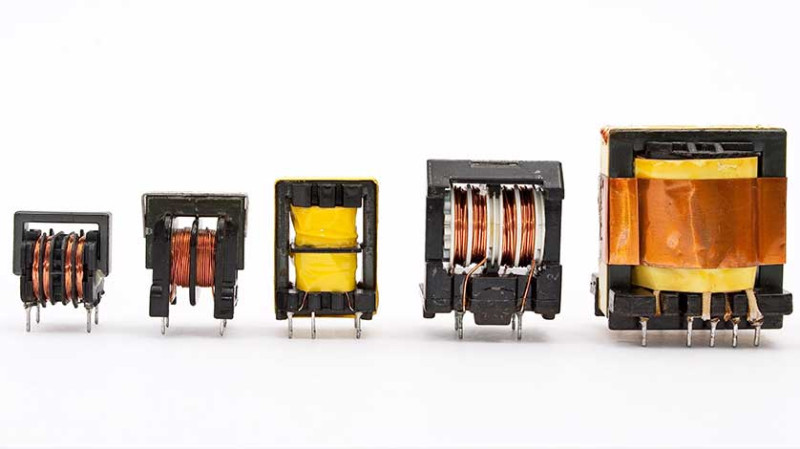
Whether you're a DIY enthusiast tackling your next home makeover, a professional designer planning lighting accents, or even a seasoned tradesman who has dabbled in wiring work, you’ve probably admired electricians for making sense of the chaos that is modern electrics. But here's the shocking truth: being an electrician isn't all bright ideas and light fixtures. For all of its advantages—skills in high demand and decent pay—it also comes with a unique set of challenges most people outside the trade never see.
If you've ever considered becoming an electrician, or even simply hiring one, it's worth understanding what a typical day looks like. Spoiler alert—it’s not always pretty. Here are five brutally honest reasons why being an electrician isn't all it’s wired up to be.
1. The Physical Toll Is Brutal
Let’s face it—working as an electrician is a far cry from sitting at a desk with ergonomic support and a double espresso. Electricians spend their days bent into crawlspaces, crawling through attics, squeezing into lofts full of fibreglass insulation, or balanced dangerously on ladders while trying to rewire lighting for a Victorian terrace that's seen better days.
Over time, this kind of physical strain takes its toll. Back problems, neck stiffness, and muscle fatigue are part of the daily grind. In older properties across the UK—especially common throughout London, Manchester, and Edinburgh—access routes can be inches wide and often consist of brittle lath-and-plaster walls. The environment an electrician works in is constantly compromising their posture and physical comfort.
Moreover, electricians often handle heavy equipment and conduits. Lifting distribution boards into place, drilling through masonry, and working overhead for hours at a time aren't just tiring—they can become physically debilitating. Repetitive strain injuries are common, especially after years on the job without adequate rest.
And let’s not even get started on the PPE. Wearing thick gloves and protective goggles in tight, overheated spaces is far from glamorous—especially when the sweat starts dripping and visibility drops.
2. The Hours Are Mad – and Unpredictable
Think electricians clock out at 5PM and enjoy their evenings? Think again. The truth is, their work hours can be sporadic, long, and entirely driven by emergencies.
Power outages, faulty meters, fire hazards, and water-damaged junction boxes do not keep regular working hours. Domestic customers—especially scared homeowners—demand immediate fixes even if it's 2AM. For many electricians, being on call isn’t an occasional requirement; it’s a way of life.
And while self-employed electricians in the UK have the potential to earn decently, many end up working weekends or bank holidays to stay competitive. Larger commercial or high-end domestic jobs—such as rewiring old Georgian townhouses in London or installing smart lighting in trendy Cheshire homes—often require electricians to work around other trades, pushing their shift to odd hours.
Taking a proper holiday? Easier said than done. When one-man bands are off the tools, they’re not getting paid—and that means holidays cost them twice: loss of income + trip expenses. Not exactly a perk of the trade.
3. Complex Regulations Drain the Joy Out of the Job
UK electricians are among the most regulated tradespeople in the country. Between the often-updated BS 7671 Wiring Regulations and the necessary compliance with Part P of the Building Regulations, there’s a constant juggling act between getting the job done and keeping it legal.
Understanding the regs isn’t the hard part—it’s staying on top of the ever-changing updates that can make you feel like you need a lawyer and an interpreter just to change out a consumer unit. And that’s before you’ve even looked at local council requirements, NICEIC or NAPIT accreditation renewal, and paperwork for electrical installation certificates (EICs) and minor works certificates.
For newer electricians, the mountain of red tape can be overwhelming. For seasoned pros, it’s just a never-ending annoyance that keeps eating away at job satisfaction. Studies have found that tradespeople in the UK spend at least 20% of their working time filling out paperwork or coordinating with local authorities. That’s 20% you’re not actively earning, and that adds up over a year.
And no, you can’t cut corners. Inexperienced clients may not understand their sparkie’s fixation on doing everything “by the book,” but one wrong move and you're potentially facing fines, being struck off a certification body, or worse—liable for injury or fire. The mental pressure is real.
4. People’s Expectations Are Off the Charts
Clients—especially in the age of Pinterest-perfect mood boards and five-minute DIY reels on Instagram—expect electricians to perform miracles. They want lighting that responds to voice commands, sockets you can’t see but work from anywhere, and a perfectly flush finish with zero “mess.” Better yet, they want the whole install done tomorrow, for half the quote, and without any damage to the recently tiled splashback.
Unrealistic expectations are one of the top reasons electricians report stress on the job. There is little public understanding of what’s behind the wall or how long a proper rewire of a 3-bed semi-detached in Birmingham actually takes. No two older houses are the same, and unforeseen quirks like knob-and-tube wiring or ancient fuse boxes routinely cause delays—but try explaining that to a client who saw it done faster on a telly programme.
Even architects and designers, while skilled in their own domains, sometimes create plans that defy the laws of electrical physics. Built-in LED features and hidden channels? Beautiful—but if there’s no allowance for access routes or ventilation, it’s the sparkie left scratching his head and spending hours problem-solving on site.
The pressure to meet expectations with absolute perfection, under tight budgets and tighter timelines, has many electricians carrying not just toolboxes but stress overloads.
5. Safety Risks Are Very, Very Real
You don’t need to be reminded that working around electricity comes with obvious risks—but the level of danger on the job isn’t always appreciated by outsiders.
In reality, electricians are often asked (or expected) to work on live systems—either due to time constraints or, unfortunately, a lack of understanding from clients or site managers. And no, simply turning off the circuit breaker isn’t always enough protection. From hidden junctions no one knew existed to “cowboy” DIY jobs done by previous homeowners, booby traps are all too common.
One wrong move can result in serious electrical shock or even fatal electrocution. Then there are related dangers: fire, explosion, arc flash, and falls from ladders while handling conductive materials. According to the Health and Safety Executive (HSE), electrical tradesmen are among the top groups affected by on-site injuries and accidents each year in the UK.
Even with all available PPE, grounding tools, and circuit isolation procedures, there’s still a dangerous unpredictability built into the job. You never fully relax on a wiring job—not when one stripped, live wire could change your life in an instant. That constant awareness, stress, and vigilance wears people down, both mentally and physically.
Does That Mean No One Should Become an Electrician?
Not at all. Being an electrician can be fulfilling, especially for those who love solving problems hands-on and bringing order to chaos. The salaries are competitive, the demand is strong, and there’s immense pride in lighting up a home or powering a commercial fit-out to perfection.
But it’s important to be honest. If you’re thinking about joining the trade—or just wondering why your sparkie looks permanently fatigued—it’s worth understanding the full picture. This is a job that demands more than knowledge. It takes resilience, body strength, nerves of steel and enough patience to deal with customers, inspectors, and ancient fuse boxes built before colour TV.
Respect the trade. The next time you switch on a light, remember—it didn’t get there by magic. It got there through sweat, stress, and a whole lot of wires you never even saw.






